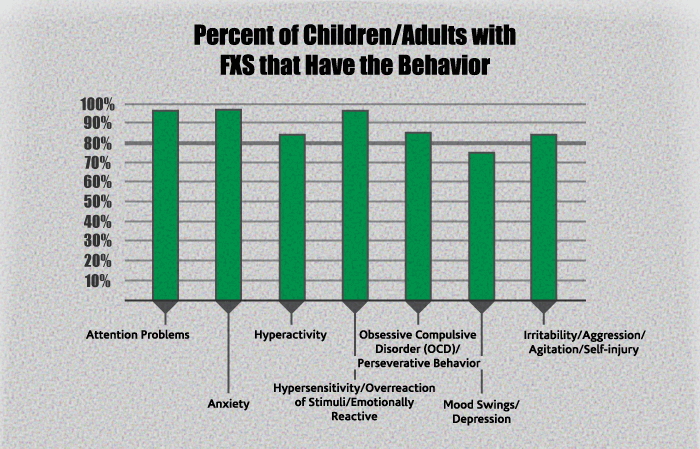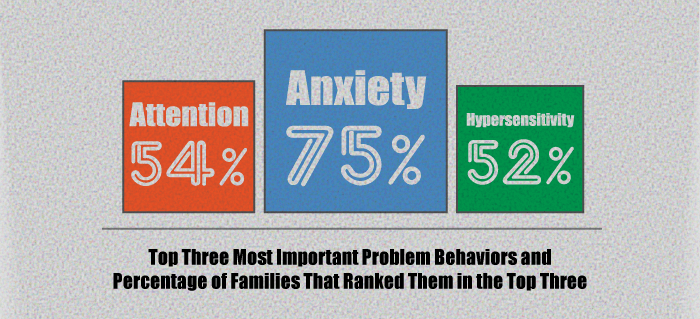A few months ago we asked the parents of children and adult offspring with Fragile X syndrome (FXS) in the National Fragile X Foundation (NFXF) community to answer a few questions.
We asked what parents thought were the most important problem behaviors seen in their children and whether they had faced a decision about seeking medication for the behavior(s).
Here we present some of the information we received from the NFXF community. The information will help us learn more about the issues and challenges families living with FXS face today.
There were a whopping 704 responses to our request! The average age of the children and adults with FXS from the survey responses was 15 years of age, with 86 percent males and 14 percent females.
The percent of people with FXS that reported one or more of the typical problem behaviors was high. For every behavioral category in the chart, at least eight out of 10 people (or over 80 percent) had symptoms, except in the area of mood swings/depression, for which 75 percent reported symptoms. There was no substantial difference between males and females.

Anxiety, attention, and hypersensitivity were ranked by families as the top three most important problem behaviors. Anxiety was clearly the most important behavioral problem and 73 percent of families faced decisions about treating anxiety (the top behavioral problem being treated with medications).

It is likely that the people volunteering to answer the questions are families facing the most difficulties. There may be many families that did not respond because they do not have concerns about behaviors.
These questions and answers helped provide data for Craig Erickson, MD at Cincinnati Children’s Hospital and Elizabeth Berry-Kravis, MD, at Rush University in Chicago to design a study about what is the best way to treat children and youth with FXS and anxiety.
A research grant application is currently being written based on this feedback from families directly impacted by the problem of anxiety. The data will be included in the grant to show that anxiety is an important problem for individuals and families with Fragile X syndrome. It also shows that Fragile X families are ready and willing to provide feedback and collaborate with the FXCRC clinics and researchers to help with treatment studies designed to improve the lives of those with FXS.
Our thanks go out to all who responded to the survey and to all of the NFXF community for its support.
On behalf of the NFXF, Dr. Craig Erickson, and Dr. Elizabeth Berry-Kravis.

